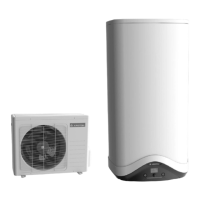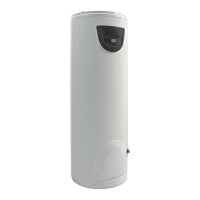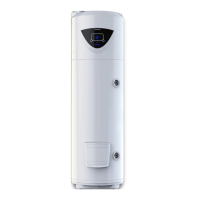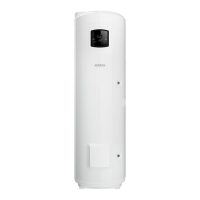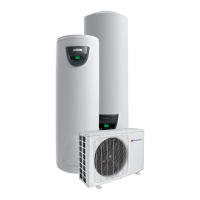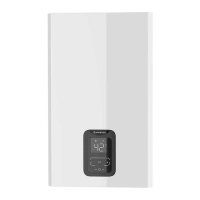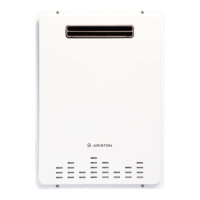Heat pump water heater – GENERAL INFORMATION
29
1.7 Identification of the appliance
The main information for identifying the appliance is contained on the adhesive data plate loc
casing.
Internal unit technical label
B tank capacity
power supply voltage. frequency. maximum absorbed power
max./min. pressure of the refrigeration circuit
thermal power in heat pump
max./min. power in heat pump mode
type of refrigerant and charge
External unit technical label
model
-
-
-
-
-
-
Level of protection
-
Type/quantity of refrigerant
Design
serial no.
2. TECHNICAL FEATURES
2.1 Operating principle
The heat pump water heater does not directly heat water using electrical energy, but makes a more rational use of the
latter to obtain the same result in a more efficient
manner, namely by consuming approx. 2/3 less water.
The efficiency of a heat pump cycle is measured by the Coefficient of Performance (COP), i.e. the ratio between the
energy supplied to the appliance (in this case, the heat transferred to the water to be
heated) and the electrical energy
used (by the compressor and the appliance's auxiliary devices). The COP varies according to the type of heat pump
and to its relative conditions of operation.
For example, a COP value equal to 3 indicates that for every 1
electrical energy used, the heat pump supplies 3 kWh of heat to the medium to be heated, of which 2 kWh are
extracted from the free source.
The main information for identifying the appliance is contained on the adhesive data plate loc
ated on the water heater
power supply voltage. frequency. maximum absorbed power
max./min. pressure of the refrigeration circuit
Type/quantity of refrigerant
The heat pump water heater does not directly heat water using electrical energy, but makes a more rational use of the
manner, namely by consuming approx. 2/3 less water.
The efficiency of a heat pump cycle is measured by the Coefficient of Performance (COP), i.e. the ratio between the
heated) and the electrical energy
used (by the compressor and the appliance's auxiliary devices). The COP varies according to the type of heat pump
For example, a COP value equal to 3 indicates that for every 1
kWh of
electrical energy used, the heat pump supplies 3 kWh of heat to the medium to be heated, of which 2 kWh are
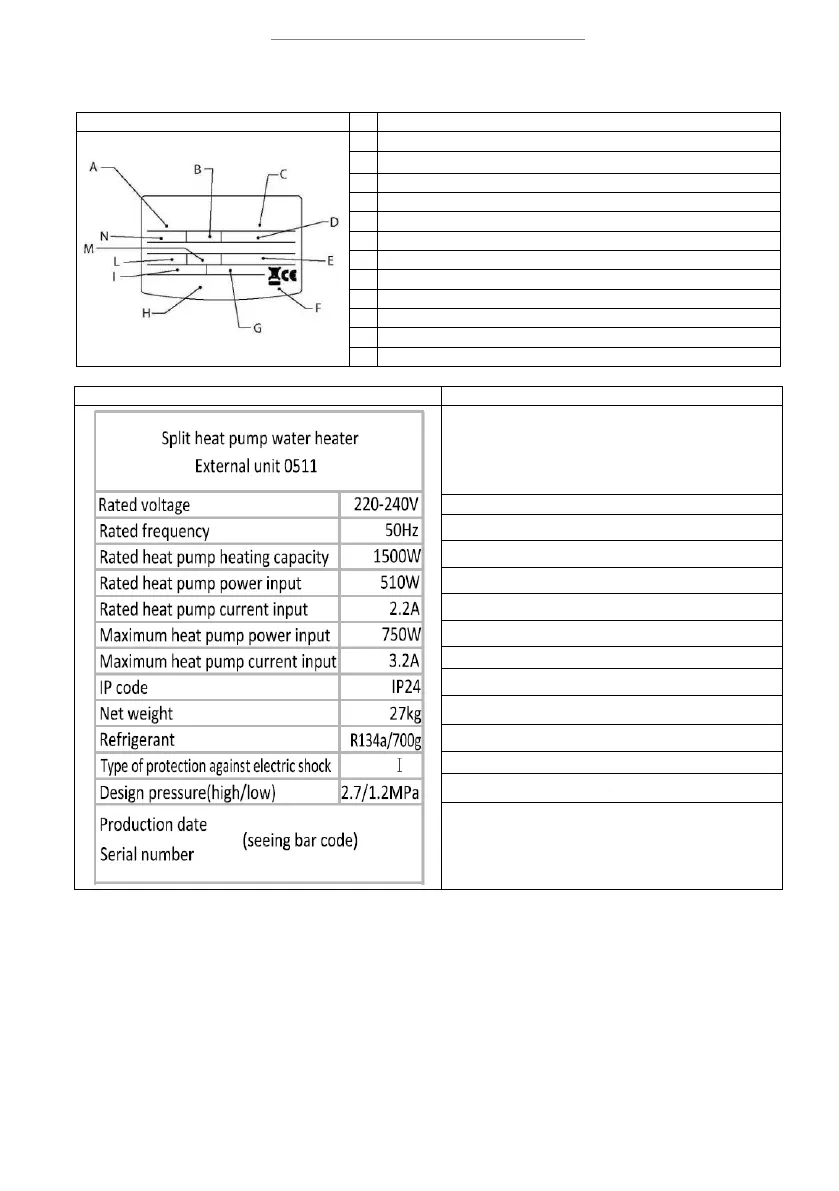